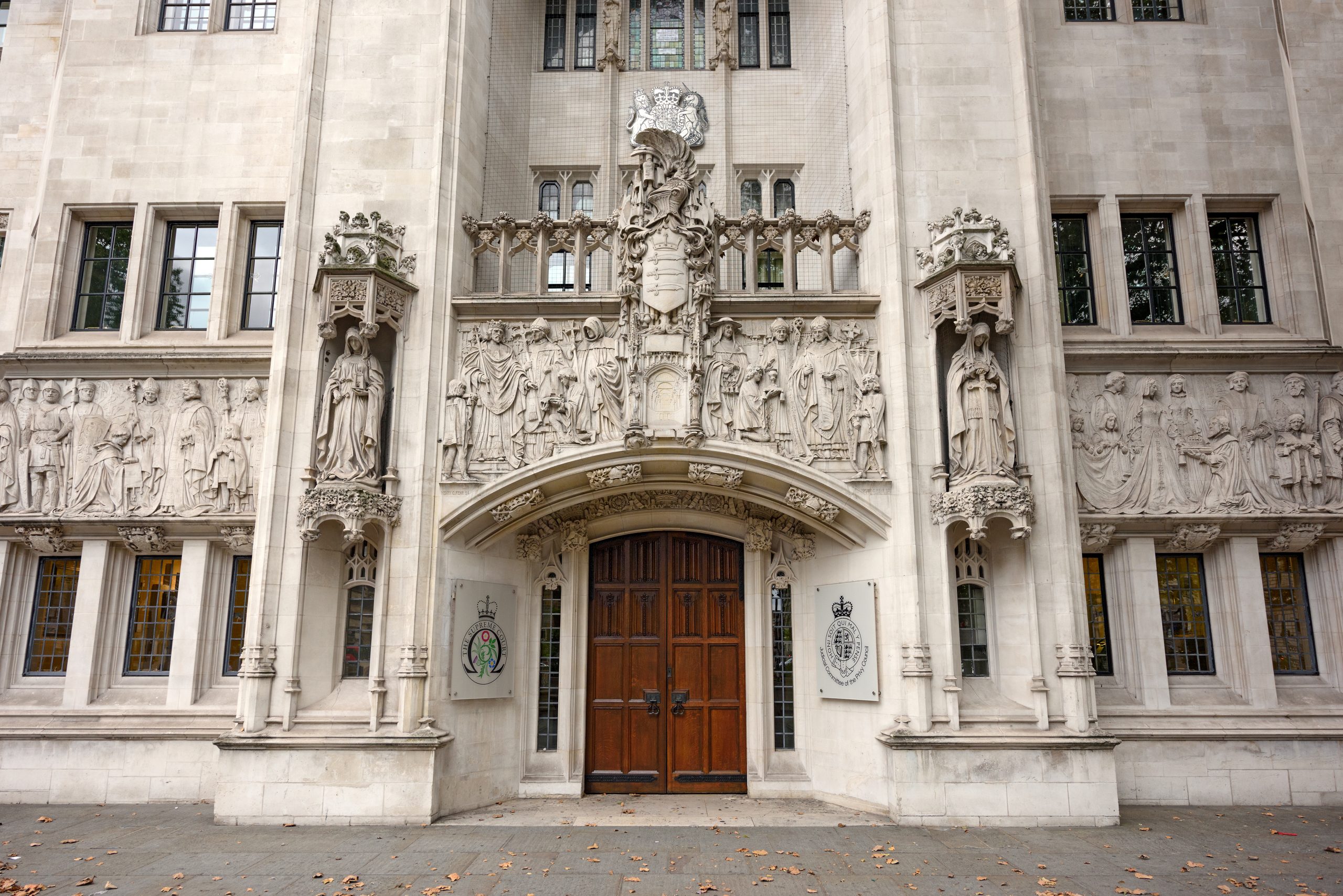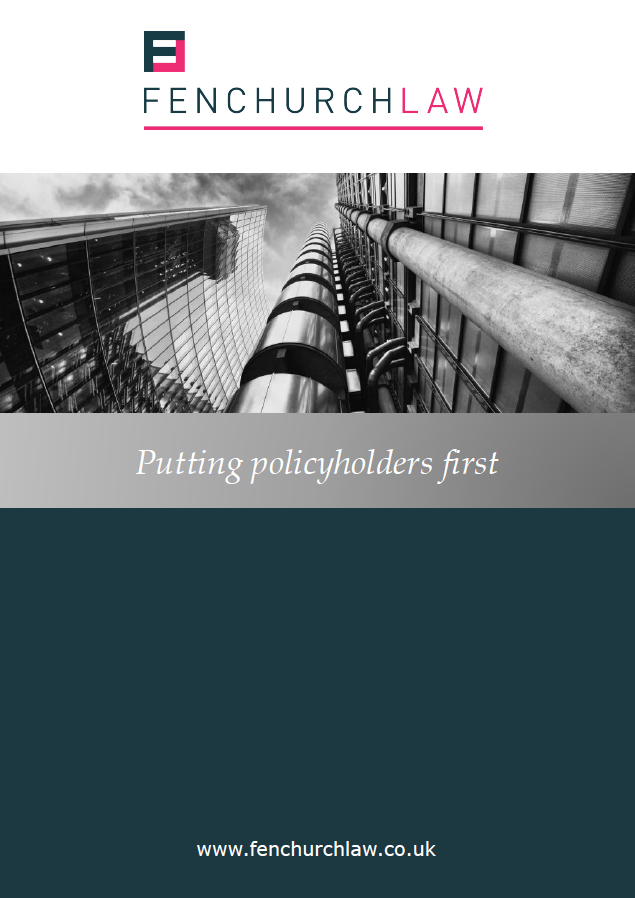
FCA Test Case – the Supreme Court Judgment: A guide for policyholders
On Friday 15 January 2021 the UK Supreme Court handed down its judgment in the FCA Test Case. The case was brought under the Financial Markets Test Case scheme by the FCA against 8 insurers, and considered the extent to which BI coverage was available under a selection of ‘non-damage’ BI extensions provided in a sample of 21 policy wordings.
The judgment is wide-ranging and extends to 114 pages. This guide does not attempt to capture all of the Supreme Court’s findings nor to describe the legal issues in any detail, but aims to provide Policyholders with what they need to know.
Who won?
The Supreme Court found resoundingly in favour of policyholders, essentially upholding the findings of the High Court and in some cases broadening the coverage available for Covid-19 BI losses.
Did insurers succeed on any aspects of their appeals?
No, insurers’ appeals were dismissed in their entirety.
Which Policyholders does the judgment assist?
Policyholders with coverage under those Prevention of Access and Hybrid clauses that the High Court found would respond to Covid-19 BI losses are now likely to have broader coverage in two important respects:
- Some policyholders whose coverage would not have been triggered at all under the ruling of the High Court will now be able to claim – in particular businesses that were only partially closed (for example a restaurant that was able to continue to offer takeaways services.)
- Policyholders whose coverage would not have been triggered until the coming into force of legal Regulations on 21 or 26 March 2020 may now claim from an earlier date, if their business was affected by instructions issued by the Government.
Importantly, no policyholder with a valid claim will now have the value of their claim reduced by virtue of a downturn in business caused by the effects of Covid-19 prior to coverage being triggered, or by taking into account any Covid-19 related factors whatsoever in considering the benchmark performance of the business against which the losses should be measured.
Are there any policyholders whose position is not affected?
Policyholders with coverage under those Prevention of Access clauses which were unsuccessful in the High Court, because of findings that the clauses were intended to respond to specific localised events such as gas leaks and bomb scares, rather than broader circumstances of the pandemic, do not benefit from the Supreme Court’s decision, as the FCA chose not to appeal the High Court’s findings in relation to those policies.
Are there any policyholders who are now worse off?
No. The Supreme Court dismissed all of the Insurers’ multiple grounds of appeal which, if successful, would have resulted in a less favourable position for policyholders.
What is the effect of the decisions on causation, trends clauses and the Orient Express case?
Complex cases were argued by all the parties before the Supreme Court on the linked issues of causation, trends clauses and the Orient Express v Generali case. Whilst the court’s findings in relation to those issues are of significant importance for the industry and English insurance law going forward, any detailed discussion is beyond the scope of this note.
The takeaway for Policyholders is that, in overruling Orient Express and taking a ‘concurrent causes’ approach generally to the issue of causation, policyholders whose coverage is triggered will now be entitled to an indemnity for the full extent of their Covid-19 related losses. Whilst there will inevitably be room for significant disagreement as to the correct measure of those losses, the Supreme Court has made it clear that the comparison against which the actual performance of the business must be measured must not take into account any impact of Covid-19 on the business, including any downturn in business prior to the business being closed and Policy coverage being triggered.
Are there issues left unresolved that the SC does not address?
The Supreme Court decision is final and now represents the settled position under English law as far as coverage, causation and the application of trends clauses is concerned.
There are other issues that will affect the coverage and quantification of business interruption claims which the Supreme Court did not consider, including:
Aggregation
For the purposes of the application of sub-limits of liability and deductibles, how many ‘losses’, ‘events’ or ‘occurrences’ has the policyholder suffered? This is particularly pertinent to policyholders with multiple premises and to consideration of further local and national lockdowns.
Disease at the premises
The Test Case did not consider, and did not therefore make any ruling in relation to Infectious or Notifiable Disease clauses that respond to losses caused by occurrences of disease ‘at the insured premises’ (as opposed to occurrences within a specified radius of the insured premises). The findings of the Supreme Court may now cause coverage under those clauses to be revisited.
Loss of Rent
The Test Case only considered policies providing ‘traditional’ BI coverage i.e. for loss of gross profit and increased cost of working. Policies providing express coverage for loss of rent by landlords were not considered. Different coverage issues arise in relation to those policies, which are not straightforward.
Deduction of government assistance
Many policyholders bringing claims will have benefited from various forms of government assistance since the emergence of the pandemic, and the correct treatment of such financial assistance for the purpose of calculating a BI claim indemnity is unsettled. The FCA issued a ‘Dear CEO’ letter on 18 September 2020 in which it advised insurers “We therefore do not consider the Government’s treatment of the Small Business, Retail, Hospitality and Leisure or Local Authority Discretionary grants for tax purposes is a proper basis for insurers treating those payments as turnover under the policies. Nor do we see that insurers can apply these amounts as savings against fixed business expenses”. As to other forms of government support, there remains ample scope for further disagreement.
Damages for late payment
The Enterprise Act 2016 introduced into law a new right for policyholders to claim damages for late payment of insurance claims, which did not previously exist. The right to claim damages remains untested by the courts, but the present circumstances may well lead to policyholders seeking to recover the additional costs they have incurred as a result of not being paid their claims promptly since notification in March 2020, including additional costs of financing, and in some cases costly corporate re-organisations and administration processes.
What should I do next?
The FCA and Insurers will now work with the Supreme Court to agree a set of declarations giving effect to the Supreme Court’s findings. The FCA has also indicated that it intends to issue a Q&A document for policyholders, giving guidance on who is now entitled to claim.
Previous guidance from the FCA required all insurers with ‘potentially affected claims’ to communicate with policyholders on the status of claims already submitted, and to review the coverage status of such claims following the High Court judgment in September 2020. Policyholders who have previously received communications from insurers in this respect can expect further communications following the Supreme Court judgment.
Policyholders that submitted claims earlier but that have not heard from insurers since the commencement of the Test Case, but who believe that their claim may be affected, should contact their broker or insurer to seek clarification on the status of their claim.
Policyholders that did not submit a claim earlier but believe that they may now have a valid claim following the Supreme Court judgment should contact their broker or insurer to discuss how to notify a new claim.
For a more detailed discussion and analysis of the Supreme Court judgment, please join our webinar on 21 January. Joining details can be found here.
Other news
Commercial Court grounds War Risks insurers in landmark Russian aircraft judgment
30 June 2025
Please find a link to the judgment here - Russian Aircraft Lessor Policy Claims [2025] EWHC 1430 (Comm) Introduction On…
You may also be interested in:
Archives
Categories
- Press Release
- Uncategorized
- The Good, the Bad and the Ugly
- Fenchurch Law Webinars
- Stonegate
- Newsletter
- Events
- Webinars
- Comparing German and English Insurance Law – A Series
- Construction Risks
- Operations
- Business Development
- Construction & Property Risks
- News
- International Risks
- Legislation
- Financial & Professional Risks
- Case Law
- Professional Risks



